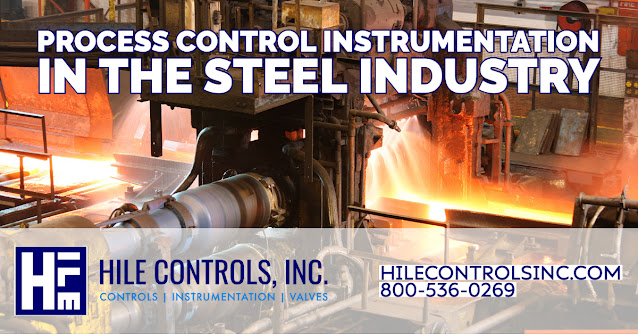The U.S. is one of the largest steel producers in the world. The industry is primarily in the Midwest due to its proximity to raw materials and transportation networks. However, steel production also occurs in Southern states like Alabama and on the West Coast.
Steel production in the U.S. includes integrated steel producers, who make new steel from iron ore in blast furnaces, and mini-mills, who recycle scrap steel using electric arc furnaces. Companies such as U.S. Steel, Nucor, and ArcelorMittal are among the major players in the industry.
This industry is critical to various sectors, including automotive, aerospace, construction, and consumer goods. It is also strategically important for national defense. However, it faces challenges related to global competition, environmental regulations, trade policies, and technological changes.
Process control instrumentation is crucial in steel production to ensure efficiency, quality, and safety. Here's a brief overview of how temperature, pressure, level, and flow controls apply in this context:
- Temperature Control: Temperature is one of the most critical parameters in steel production. In smelting, casting, rolling, and heat treatment processes, precise temperature control is necessary to achieve the desired metallurgical properties and prevent defects. Thermocouples, infrared thermometers, or thermal imagers are used for temperature measurement and control.
- Pressure Control: Pressure control is essential in processes that involve gases, such as the blast furnace operation, where a mixture of iron ore, coke, and limestone is heated with a hot air blast. Too high or too low pressure can impact the furnace's efficiency and the quality of the molten iron. Pressure transducers and controllers maintain the optimal pressure.
- Level Control: The level of molten metal in the ladle or the level of raw materials in a hopper or furnace needs to be precisely controlled to prevent spills, ensure consistent feed rates, and optimize the production process. Ultrasonic, radar, or laser-level sensors are applied for this purpose.
- Flow Control: Flow control is essential in several areas, including controlling the flow rate of cooling water in continuous casting machines, controlling the flow of gases in a blast furnace, or managing the flow of molten steel. Flowmeters monitor and control these flows to ensure optimal operating conditions and prevent equipment damage.
Process control instrumentation is indispensable in steel production, providing real-time monitoring and control helps maximize efficiency, reduce waste, ensure product quality, and maintain safe operating conditions. Advances in digital technologies, such as the Industrial Internet of Things (IIoT) and machine learning, further enhance the capabilities of process control systems in steel production.
https://hilecontrolsinc.com
800.536.0269
